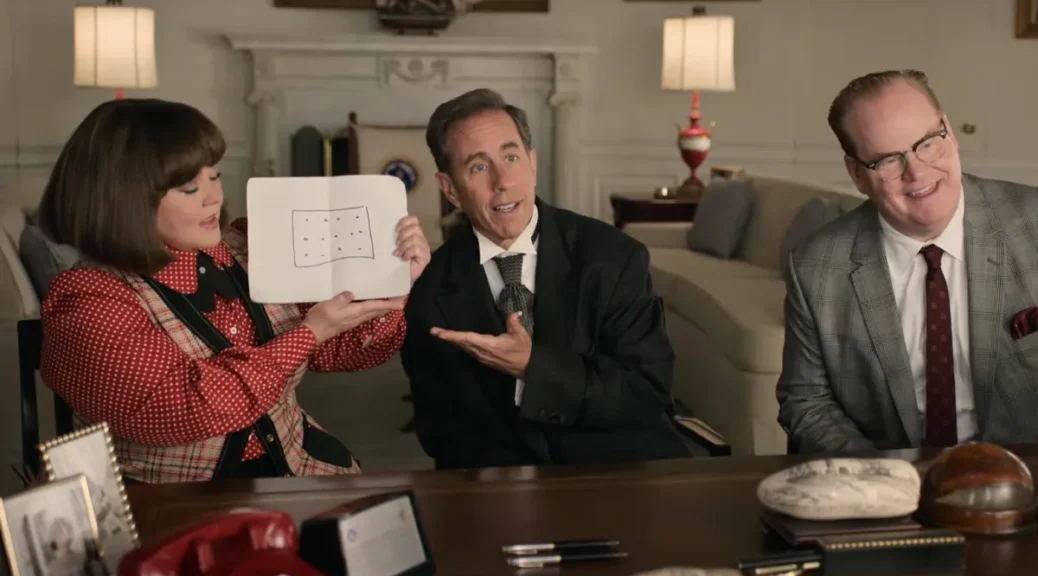Unfrosted
by George Wolf
Boy, Jerry Seinfeld knows how to get clicks before a new movie drop, doesn’t he?
In case you missed his recent impression of Grandpa Simpson yelling at a cloud, Seinfeld has taken his talents from the stifling confines of sitcoms to Netflix for Unfrosted, his debut as a feature director.
Also writing the script with regular contributors from both Seinfeld and Bee Movie, Jerry returns to the familiar ground of cereal for a silly and star-studded riff on the 1960s space race.
Jerry plays Bob Cabana, top exec at Kellogg’s during their reign as the kings of breakfast. But Bob and his boss Edsel Kellogg III (Jim Gaffigan) are worried about what Marjorie Post (Amy Schumer) and her crew are suddenly cooking up: a breakfast pastry.
As quickly as Jerry can say “xanthan gum!” exactly like “Newman!,” Bob is back together with old partner Donna Stankowski (Melissa McCarthy) for a mission to launch their own handheld breakfast innovation (“Fruit Magoos”? “Heat ’em and Eat Ums?”) before Post can.
Some snappy production design adds to the inspired concept of this Battle Creek, Michigan battleground, which takes off on a Forrest Gump-like history lesson littered with famous faces and absurd antics.
One of the best is Hugh Grant playing Thurl Ravenscroft (voice of Tony the Tiger) as a snobbish master thespian ready to lead his fellow mascots in revolt. But there’s also Christian Slater and Peter Dinklage as members of an “organized milk” syndicate, a group of Taste Pilots that includes Chef Boyardee (Bobby Moynihan) and Jack LaLanne (James Marsden), and a visit from two very well-known TV characters that is better left unspoiled.
And somehow, a couple of dumpster-diving pre teens (Bailey Sheetz and Eleanor Sweeney) nearly steal the whole show.
The Boomer-centric nuttiness comes fast and furious (yes, that is Toucan Sam singing “Ave Maria” at a funeral with Full Cereal honors), and, as you might guess, not all of it lands.
As an actor, Jerry’s still playing Jerry. And as a director, he seems most comfortable with sitcom pacing that’s well-suited for streaming. But Jerry takes a rule that Seinfeld perfected – surround your star with a group of more memorable characters – and pops it in a toaster set to ten. What doesn’t work is quickly erased by another absurd opportunity, and then wrapped with a full song-and-dance finale.
I wouldn’t call it well-rounded, healthy or even balanced, but Unfrosted is eventually able to serve up just enough real laughs for a satisfying plate of silly.








